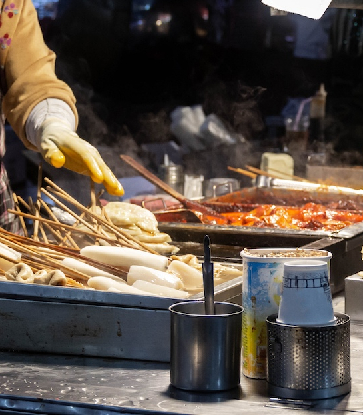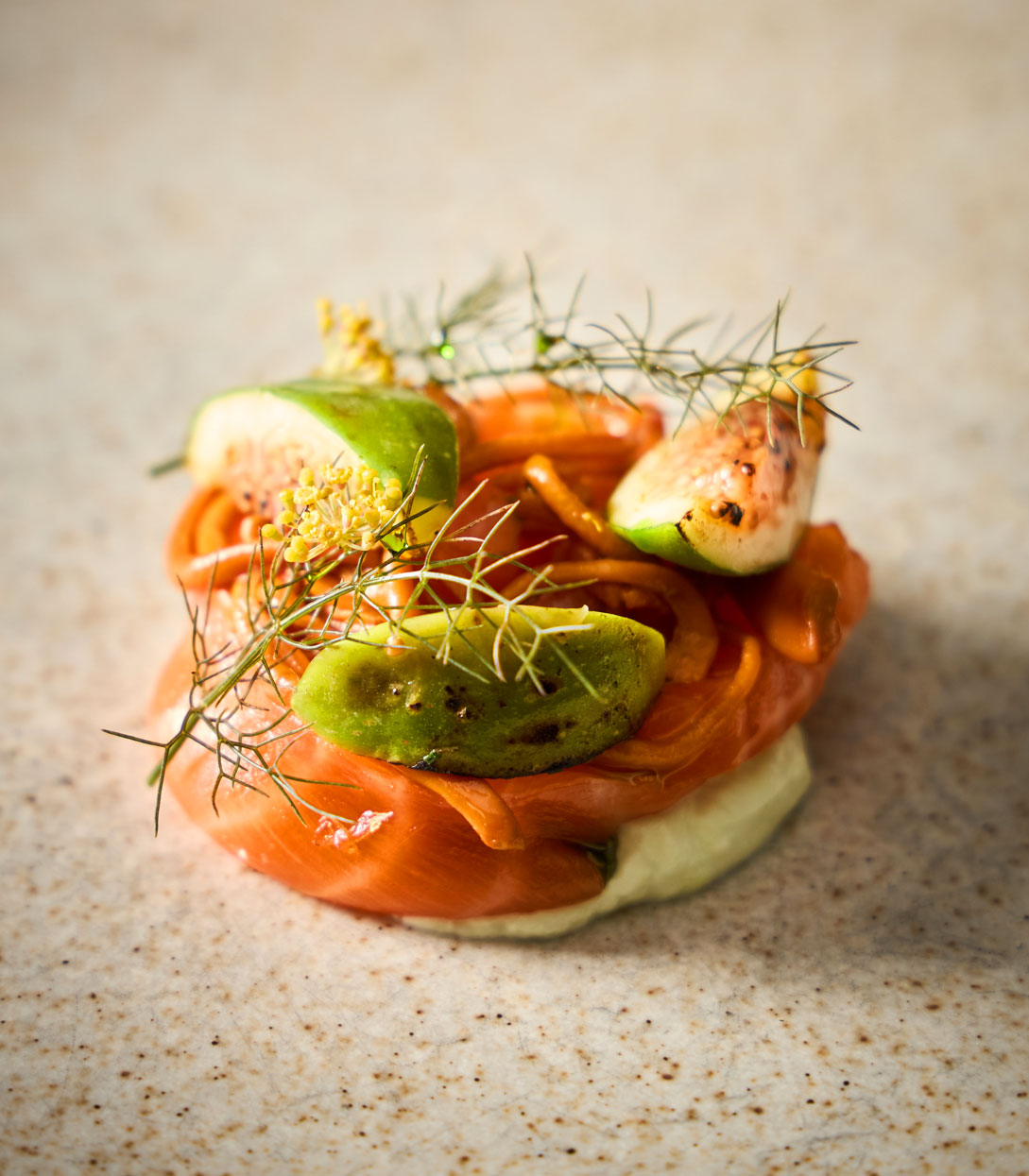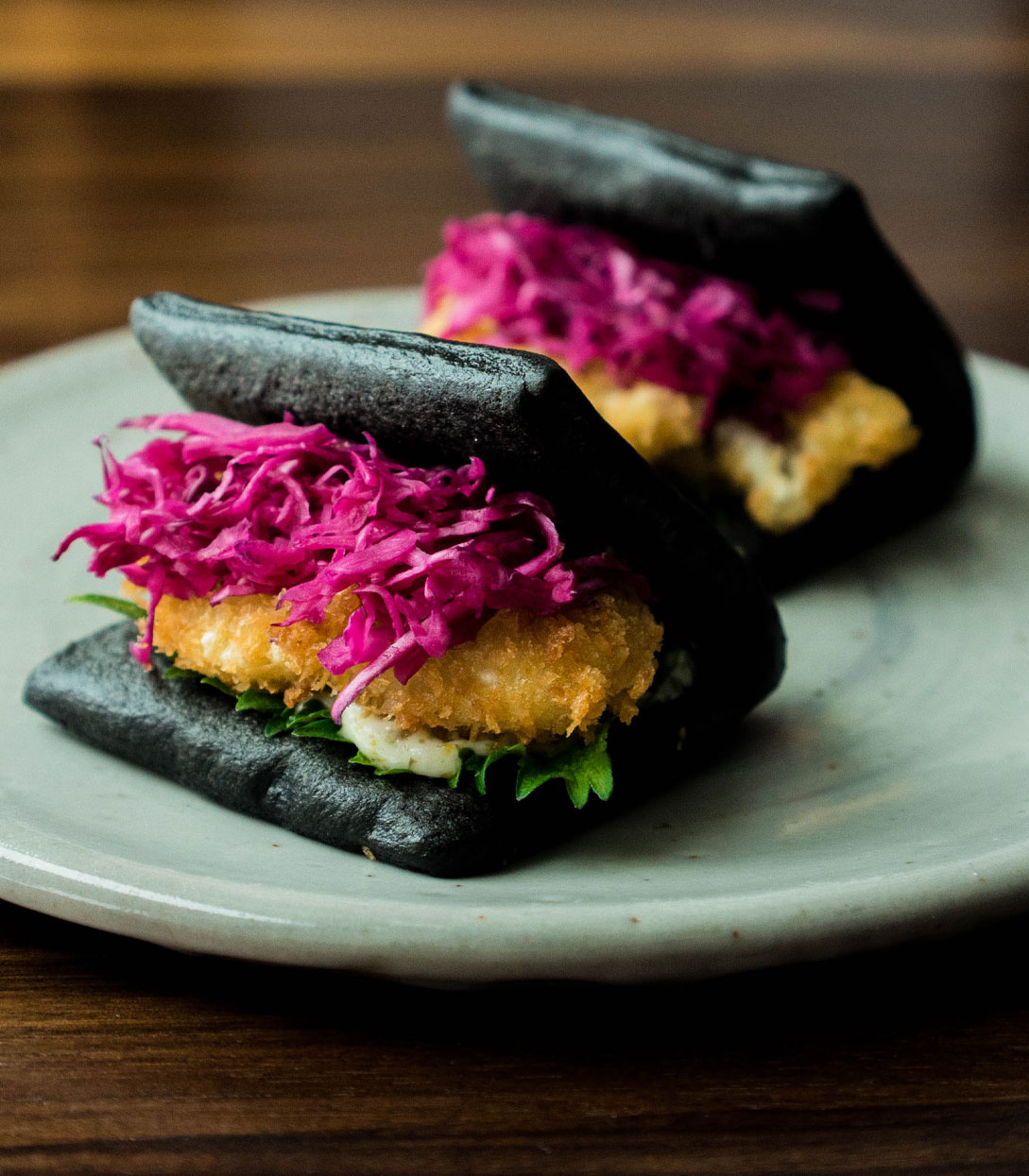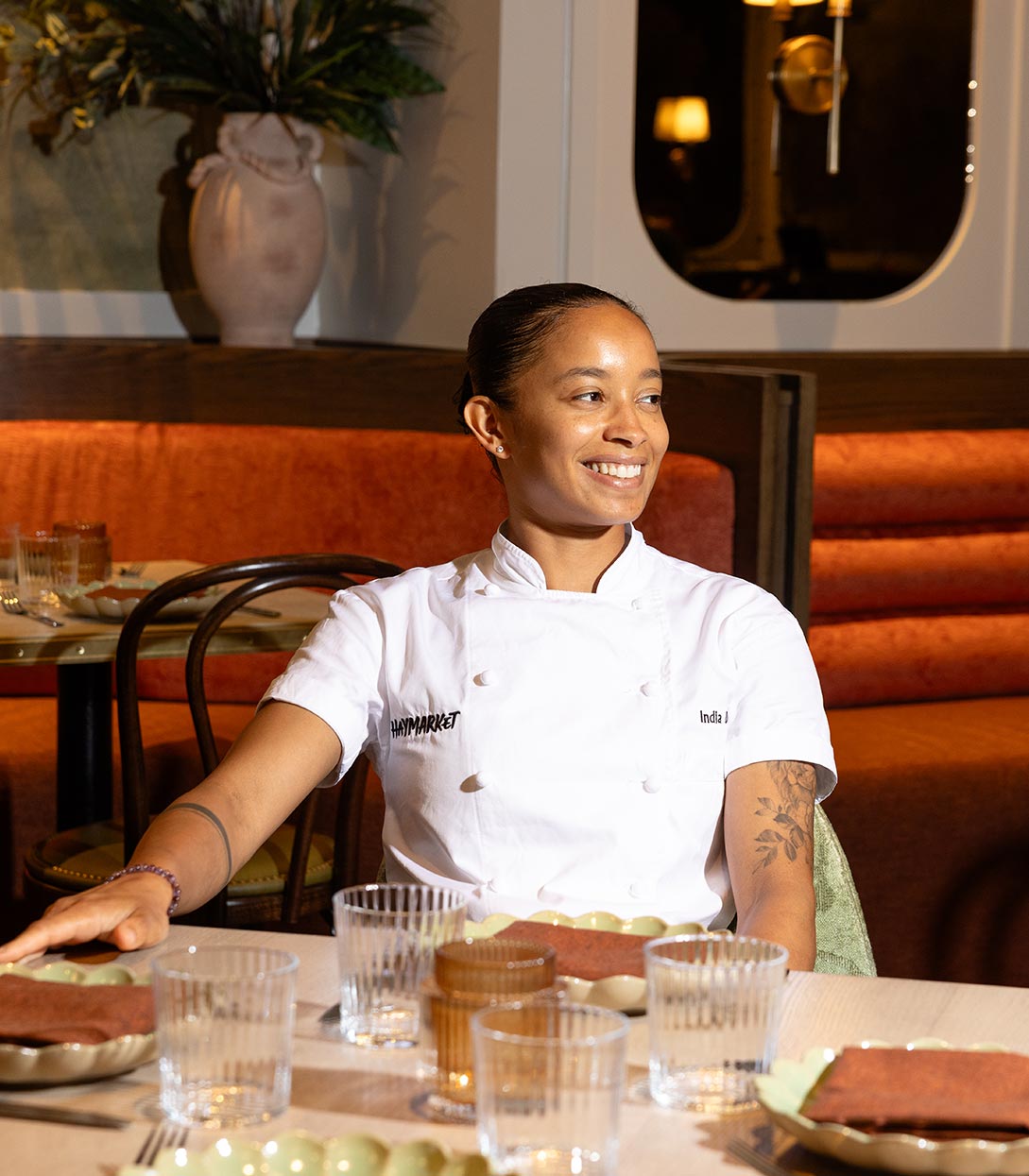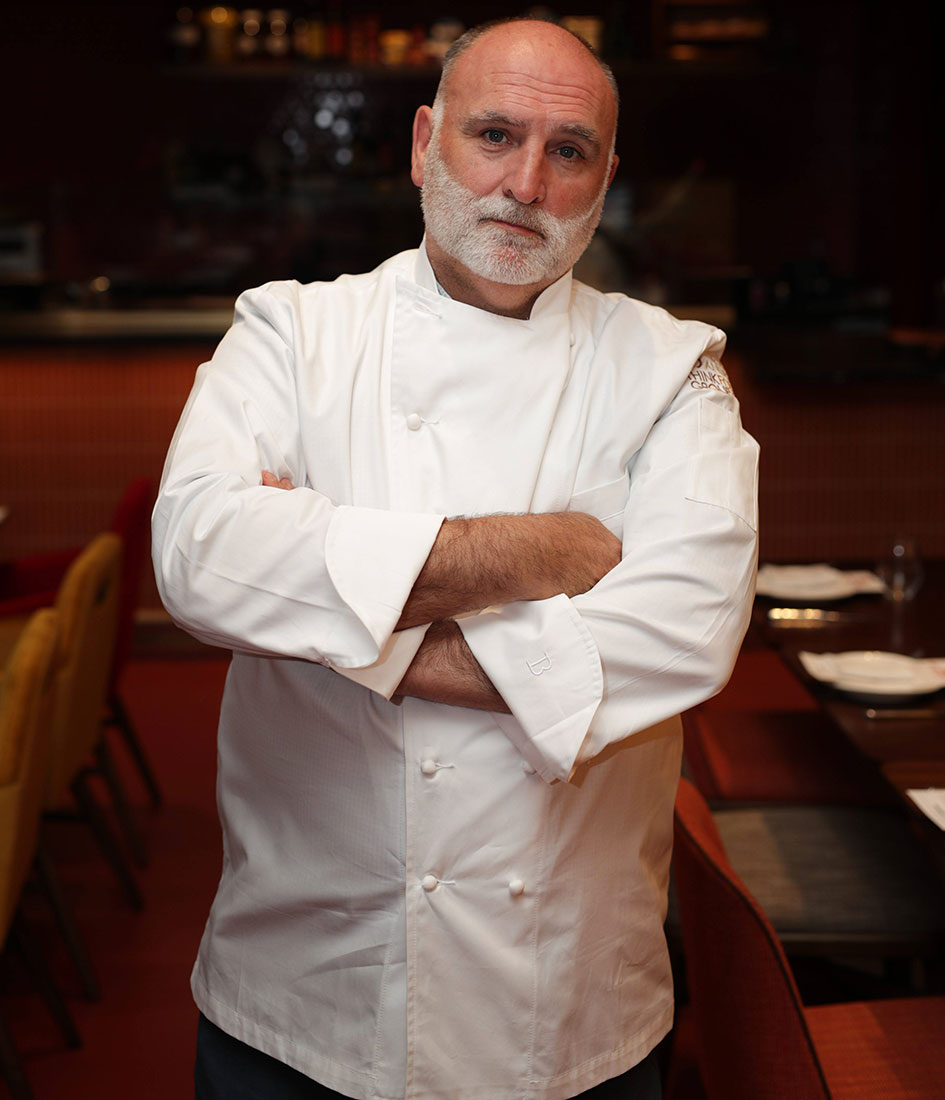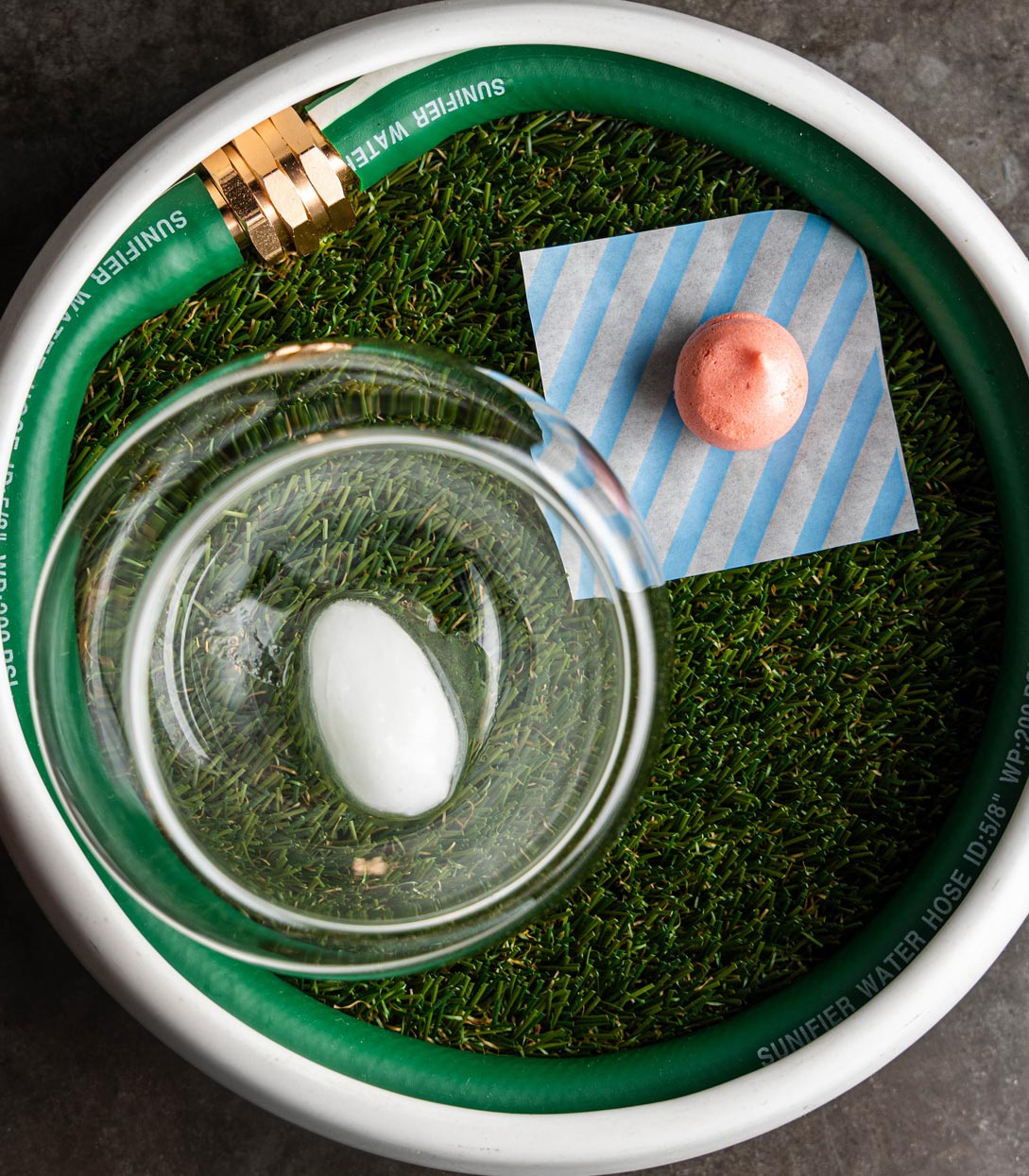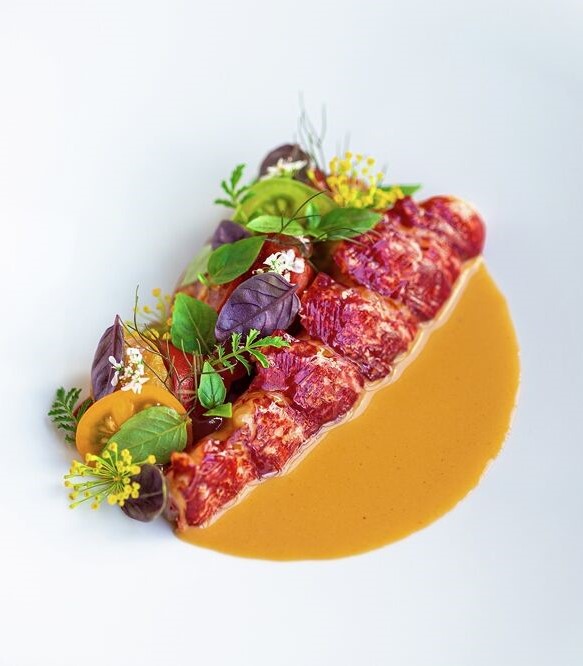Growing up, I wondered what a chef’s counter experience was like—would it be as delicious and life changing like they say? That’s when I heard of Wangbi, the new fine dining chef’s counter concept drawing inspiration from Korea's rich heritage. Tucked discreetly upstairs from the boisterous Bib Gourmand Antoya, Wangbi's team is spearheaded by MICHELIN Star talents like Executive Chef Taewoo Kim (a founding chef of One MICHELIN Star Jua) and Corporate Wine Director Joo Lee (of Three MICHELIN Star Eleven Madison Park and Two MICHELIN Star Saison), I knew I had to go.
However, these experiences are best shared with friends and family, so I decided to invite my mother and grandmother; one who never eats anything and one that complains about everything. Equipped with two of the most discerning diners eaters, I knew the challenge was on. And boy, was I surprised.
The name Wangbi is a tribute to owner Tony Park’s wife, Katherine Wang, and a sanctuary for guests to escape the busy streets of New York. Translating into queen, Wangbi aims to cocoon its guests like royalty in the midst of midtown Manhattan madness. Don't let the first steps inside fool you—pass through the buzzy energy peppering the tables at Antoya and climb the stairs to the second level mezzanine, and you enter a serene and tranquil spot.
You immediately find yourself in something that looks like it was ripped right out of a K-drama. Walls are adorned with a floating replica of a majestic royal palace temple and an exquisite traditional hanbok silk dress (ceremonial dress worn for joyous occasions). Tableware features custom pottery from ToTo Ceramics based in Icheon and traditional Korean bangjja yogi (hand-forged bronze ware). Even the soy sauce has been sourced from Andong Jebiwon, an artisanal sauce maker that uses 100-year old traditional techniques. Every touchpoint takes cues from the rich heritage of South Korea.
That also translates to the cuisine, where executive chef Taewoo Kim and corporate wine director Joo Lee lead the charge with a $125 tasting menu and a beverage list filled with premium liquors and drinks from Korea.

As this was my first time at a chef’s counter, I didn’t know just what to expect. What was known was how many courses would be served—eight total with oxtail, Omaha prime short rib, and galbi catching my attention.
I’ve divided the menu into three parts: appetizers, main course, and desserts. The first five courses would be categorized under appetizers, the "meal" under main course, with the last two courses falling under the desserts umbrella.
Now that we've broken down how the meal works, let's get down to business.

The appetizers included the yukhoe (Omaha prime ribeye, lemon sauce), oisun (cucumber, mushroom), soojebi (perilla seed, hand pulled noodles, bone marrow soup), oxtail (meant to be eaten with your hands akin to its Korean street food cousin), and Omaha prime short rib. While all were as tasty as you'd expect, two dishes stood out.
First was the oisun, which came in the form of galbi-tang topped with a slice of cucumber. Galbi-tang, for the uninitiated, is a traditional short rib Korean soup. I’ve sampled many variation of this dish, however, I’ve never had it in jello form. Wangbi's take subverted convention with their gel-like consistency that was—almost—reminiscent of jello shots that I used to take in college (sorry mom), minus the hangover.
The other surprise was the soojebi, typically made from hand-pulled noodles. Chef's version used freshly made rice cakes and the combination of chewiness coupled with the thick and creamy bone marrow soup was enough to warm my soul.

For the main course (the fifth course if you’re keeping count), we had a meal consisting of Antoya galbi, uni rice, soybean paste soup with tofu, along with the typical sides of seaweed, kimchi, and egg omelette. Having popped by in the early days of opening, the chef’s counter was still very much a work in progress. The blast freezer was stuck in shipping limbo and the egg omelette was cooked over the Korean barbecue grill. This only enhanced my experience as it created a less formal, more casual vibe where it's ok to eat the oxtail with my hands or wrap the rice and galbi with seaweed and eggs.
The rice and galbi dish was almost better than a bacon, egg, and cheese. And this is coming from a born-and-bred New Yorker. The toasted seaweed was just flaky enough without falling apart, crunchy without being too coarse, while the galbi and egg acted as the savory complements.

And despite being many courses in, it wasn't overly filling allowing for the true highlight of the evening, the desserts. A palette cleansing and refreshing watermelon fruit dish appeared first, but it was the butter flavored "Megatoni" ice cream popsicle topped with a dash of caviar. Riffing off the iconic Korean ice cream bar Megaton, Wangbi's elevated version pays homage to its owner, Tony, with the name, while the texture is like a mochi ball on a stick. Even my grandma, who never eats sweets, devoured the popsicle like it was a carnivores first time discovering bacon.
Once we settled up, it was time to review my thoughts. It's clear that Wangbi isn’t another chef’s counter in New York City, but rather a gateway to Korea and an escape from the everyday. It also captures the soul of Korea's remarkable culture—and the menu is proof of that.

Hero image: Courtesy of Wangbi





